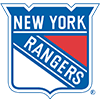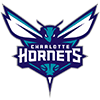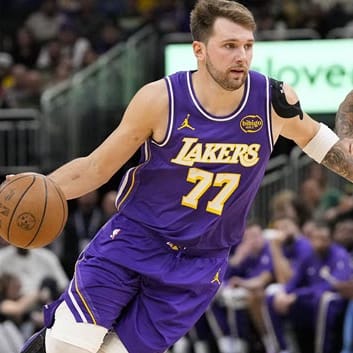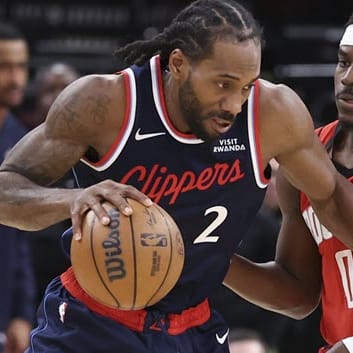We typecast so much. Too much.
Kevin Love, the winner of what he called the "White Guy Award", is furiously nodding at me as I write this. This past week, NBA general managers got together for a series of polls, the results posted on NBA.com, that would go over some of the best and worst players at each position or category in basketball.
James Harden won best shooting guard. LeBron James won best small forward (even though he now plays a lot at power forward). Tim Duncan won best power forward (even though he plays a lot at center). Dwight Howard won best center. And so on.
Then came the question, "Which player makes the most of limited natural ability?" And who won that poll? Kevin Love.
Who came in second? Marc Gasol. Who followed Gasol? Matt Bonner, Jared Dudley, and J.J. Barea. I'm sensing a theme here.
It's like an adapted version of Snow White and the Barea Dwarf. It's not that Matt Bonner isn't a legitimate choice. He is. Same thing even with someone like Gasol, who was larger than a Hummer more recently than you might imagine. But Kevin Love? Seriously? Kevin Love?
Love has one of the strongest lower bodies in the game. He's an "unathletic" power forward that just happens to have a 35-inch vertical. As CBS's Chris Towers already pointed out, Love had better numbers at the NBA Combine than Anthony Randolph, someone
We typecast so much. Too much.
Kevin Love, the winner of what he called the "White Guy Award", is furiously nodding at me as I write this. This past week, NBA general managers got together for a series of polls, the results posted on NBA.com, that would go over some of the best and worst players at each position or category in basketball.
James Harden won best shooting guard. LeBron James won best small forward (even though he now plays a lot at power forward). Tim Duncan won best power forward (even though he plays a lot at center). Dwight Howard won best center. And so on.
Then came the question, "Which player makes the most of limited natural ability?" And who won that poll? Kevin Love.
Who came in second? Marc Gasol. Who followed Gasol? Matt Bonner, Jared Dudley, and J.J. Barea. I'm sensing a theme here.
It's like an adapted version of Snow White and the Barea Dwarf. It's not that Matt Bonner isn't a legitimate choice. He is. Same thing even with someone like Gasol, who was larger than a Hummer more recently than you might imagine. But Kevin Love? Seriously? Kevin Love?
Love has one of the strongest lower bodies in the game. He's an "unathletic" power forward that just happens to have a 35-inch vertical. As CBS's Chris Towers already pointed out, Love had better numbers at the NBA Combine than Anthony Randolph, someone who could probably be thrown into the opposite category: players who do the least with the most natural talent.
It's a stereotype, an obvious one at that, one that's clearly based on some truths. But nonetheless, it's not applicable to Kevin Love and it never has been. 6-foot-8 with phenomenal strength, above average leaping ability, and the softest touch on an outside shot aren't traits someone with limited natural ability possesses. Sorry, GMs.
It's not just the general managers' fault though. This is a societal reaction to seeing a white big man tear up the NBA consistently. Unfortunately, Charlotte's Cody Zeller is already hiding from stereotyping shelter under the same umbrella.
Zeller was a good college player but he doesn't have what it takes to make it in the pros.
The Bobcats took Zeller too high at No. 4. He can't compete at the same level with better athletes.
He's not explosive enough to finish around the rim.
It's another common theme. The same as Love's. And here's the thing: Just like with Love, none of those assessments about Zeller are true.
In actuality, Zeller was arguably the most athletic big man at the NBA Combine in Chicago over the summer. But we don't recognize that, because of other external factors.
We look back at Zeller's time at Indiana and ignore his explosion over his first two collegiate seasons just to point out that he couldn't get high enough to finish on non-NBA centers like Rakeem Christmas and Baye Moussa Keita against Syracuse in the Sweet 16. (I, myself, am guilty of this as well.)
We're stereotyping. We're typecasting. We're Kevin Loving. Whatever you want to call it, we're pushing Cody Zeller into a mold that doesn't fit him purely because of what we think he should be, not what he already is.
Zeller played four games at Las Vegas Summer League and averaged 18.3 points and 10.5 rebounds per 36 minutes. He dominated that league with his post moves, his "energy" (I know, that's another code word), and his physicality on the boards.
Playing in Charlotte this year, who's going to get into games over him? Is 10 Thumbs Biyombo going to learn how to catch a basketball? Are the Bobcats going to stump Zeller's development by playing Josh McRoberts or Jeff Adrien over him?
Zeller is going to get minutes and purely because of that, he's going to produce those counting numbers that Rookie of the Year voters love so much.
There are plenty of fair criticisms of Zeller's game. He attempted only 24 jump shots at Indiana last year. He probably can't be a rim protector with a standing reach under nine feet. He doesn't always have the best defensive awareness. But none of those are stereotypical criticisms. They're specific to the individual.
Zeller is going to catch on. If he's getting 30 minutes a night, isn't 13 points and seven or eight rebounds more than realistic for someone like him playing on a bad team? (Though I have a feeling Al Jefferson and the black hole attached to his hands might make me regret that statement.)
Victor Oladipo is a nice player, and an impossibly spectacular defender. Otto Porter is a Swiss Army Knife. Anthony Bennett is a spectacular athlete. But Oladipo is more of a defensive player than offensive one, Porter has to learn how to play more without the ball in his hands, and Bennett might be stuck behind fellow frontcourt players Andrew Bynum, Anderson Varejao, and Tristan Thompson. We know Rookie of the Year is based on the counting numbers and not necessarily quality. We've seen it every year.
So does that make Cody Zeller the favorite for Rookie of the Year? Maybe, just maybe, he's the most obvious Rookie of the Year prediction that no one has cared to pick.




































